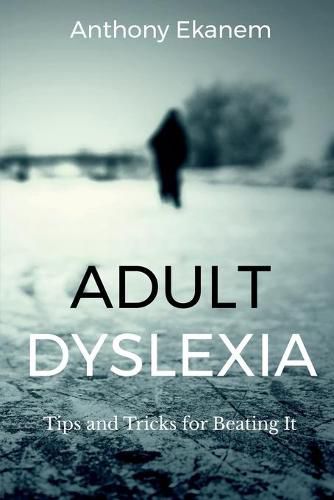Readings Newsletter
Become a Readings Member to make your shopping experience even easier.
Sign in or sign up for free!
You’re not far away from qualifying for FREE standard shipping within Australia
You’ve qualified for FREE standard shipping within Australia
The cart is loading…






This title is printed to order. This book may have been self-published. If so, we cannot guarantee the quality of the content. In the main most books will have gone through the editing process however some may not. We therefore suggest that you be aware of this before ordering this book. If in doubt check either the author or publisher’s details as we are unable to accept any returns unless they are faulty. Please contact us if you have any questions.
Dyslexia is a learning disorder that affects an individual’s ability to read, spell, write, or speak. Those who have it are often very smart and hardworking, but they have difficulty connecting the alphabets they see to the sounds those alphabets represent. Dyslexia affects mainly the areas of the brain that process language.Dyslexia is an inherent weakness in short-term memory that is either auditory or visual. It can make it extremely difficult for a person to learn and understand the relation between symbols and spoken sounds. This difficulty makes the person unable to correctly pronounce words in such a way that makes a word or sentence sound proper. The severity of the problem of adult dyslexia varies widely among dyslexic people. The main areas of difficulty include reading, writing, spelling, numeric, personal organisation and time-keeping. However, the degree to which it affects individuals may be from mild spelling difficulties to severe organisational problems or complete illiteracy. In all reality, there is nothing like a typical case of dyslexia.In most cases, people with dyslexia are unaware that they are suffering from such a problem. In contrast, others have not had a confirmed diagnosis until adulthood. Adult dyslexia can be difficult to recognise and identify as it is a problem that many people do not realise they have, or they try to hide it. Simple tasks that an individual with dyslexia may perform may become increasingly difficult, such as taking down a message, and this can lead to frustration and anxiety.Get a copy of this book to learn the tips and tricks for beating dyslexia.
$9.00 standard shipping within Australia
FREE standard shipping within Australia for orders over $100.00
Express & International shipping calculated at checkout
Stock availability can be subject to change without notice. We recommend calling the shop or contacting our online team to check availability of low stock items. Please see our Shopping Online page for more details.
This title is printed to order. This book may have been self-published. If so, we cannot guarantee the quality of the content. In the main most books will have gone through the editing process however some may not. We therefore suggest that you be aware of this before ordering this book. If in doubt check either the author or publisher’s details as we are unable to accept any returns unless they are faulty. Please contact us if you have any questions.
Dyslexia is a learning disorder that affects an individual’s ability to read, spell, write, or speak. Those who have it are often very smart and hardworking, but they have difficulty connecting the alphabets they see to the sounds those alphabets represent. Dyslexia affects mainly the areas of the brain that process language.Dyslexia is an inherent weakness in short-term memory that is either auditory or visual. It can make it extremely difficult for a person to learn and understand the relation between symbols and spoken sounds. This difficulty makes the person unable to correctly pronounce words in such a way that makes a word or sentence sound proper. The severity of the problem of adult dyslexia varies widely among dyslexic people. The main areas of difficulty include reading, writing, spelling, numeric, personal organisation and time-keeping. However, the degree to which it affects individuals may be from mild spelling difficulties to severe organisational problems or complete illiteracy. In all reality, there is nothing like a typical case of dyslexia.In most cases, people with dyslexia are unaware that they are suffering from such a problem. In contrast, others have not had a confirmed diagnosis until adulthood. Adult dyslexia can be difficult to recognise and identify as it is a problem that many people do not realise they have, or they try to hide it. Simple tasks that an individual with dyslexia may perform may become increasingly difficult, such as taking down a message, and this can lead to frustration and anxiety.Get a copy of this book to learn the tips and tricks for beating dyslexia.